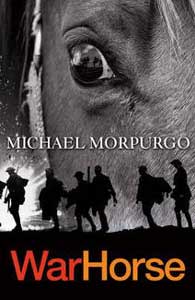
Spielberg to take War Horse for big-screen
War Horse, the hit play which began life as a children's book, looks set for a gallop on the big screen after Steven Spielberg picked up the film rights.
With its innovative use of life-size puppets to depict the horses of the first world war, the story of a young Devon farmhand who braves the trenches in an effort to find his beloved colt has proved a huge success on stage. After opening at the National Theatre in October 2007, it transferred to the West End's New London Theatre in March this year and is currently booking until February 2010, with a possible national and world tour also on the cards.
Spielberg has bought the screen rights to Michael Morpugo's 1982 novel, which formed the basis of the play, through his studio DreamWorks. The Oscar-winning film-maker said he felt the story was one with a wide appeal. “Its heart and its message provide a story that can be felt in every country,” he said.
Morpugo told the London Evening Standard yesterday: “I can think of no one better to do this. It is so exciting. I only just learnt this in the last two days. After such a fantastic success with the play, it needs someone of his imagination and skill at turning books into great visual experiences for the film version.”
DreamWorks has confirmed that Lee Hall, the Newcastle-born scriptwriter nominated for an Oscar for Billy Elliot, will write the screenplay. It is not yet known whether Spielberg will direct the film himself or take a producer's credit.
Reviewing the stage production at the National in 2007, the Guardian's Michael Billington wrote: “Marianne Elliott and Tom Morris recreate the kaleidoscopic horror of war through bold imagery … the joy of the evening lies in the skilled recreation of equine life and in its unshaken belief that mankind is ennobled by its love of the horse.”
The film version would be unlikely to utilise puppetry, but the project has the potential to stand out for a different, but just as unusual conceit. Morpugo's novel is told not from the point of view of Albert, the young farmhand, but from the perspective of Joey the horse.
